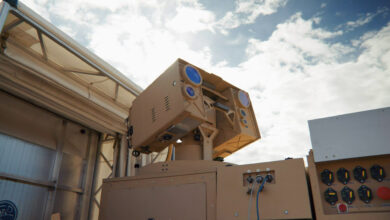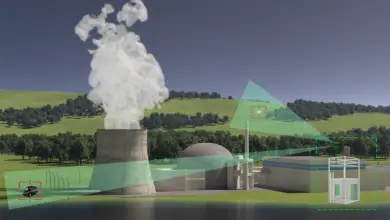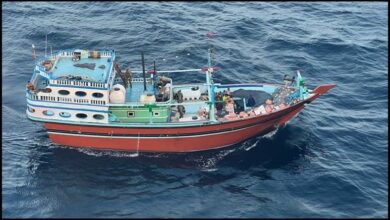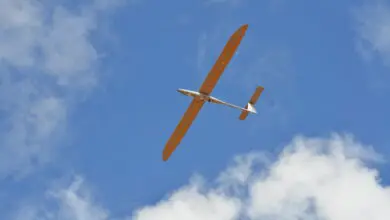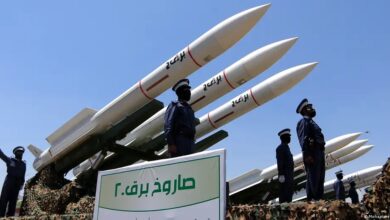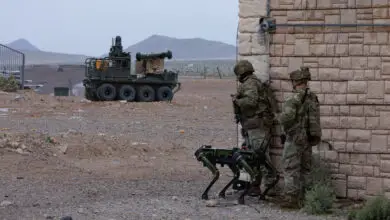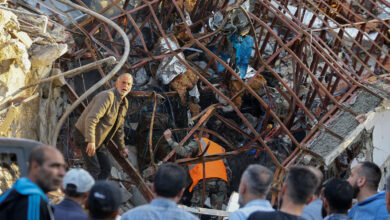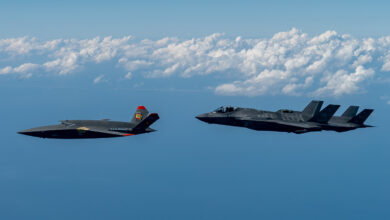
By Seth J. Frantzman and Dr. Eric Mandel
At the Black Tiger Base in the Kurdistan Region of Iraq the concerns of Kurdish Peshmerga who have spent five years fighting Islamic State have now turned to the rise of Iran-backed militias.
“ISIS is infiltrating these Sunni Arab areas where locals have a bad relationship with the Hashd al-Shaabi,” a local commander told us last month, referring to the largely Shiite militias who operate checkpoints and control parts of rural Iraq.
In the Kurdish autonomous region, a stable and prosperous part of Iraq that has been a key partner of the United States for decades, the increasing strength of Iran threatens to undermine years of work to support Iraq.
This is now clear amid the crescendo of protests in Baghdad and southern Iraq where protesters have targeted party offices of politicians linked to Iran and a heavy-handed crackdown has left more than 100 dead. Baghdad has followed the Tehran model of cutting of internet and targeting local media, while the autonomous Kurdistan region still has internet access.
This has larger ramifications. Iran increasingly wants to use Iraq as a springboard for regional ambitions. The head of the Islamic Revolutionary Guard Corps said in early October that destroying Israel was an achievable goal, and Iraq has become a key conduit for Iran’s influence to carry out its plans. Iran’s ambassador to Iraq has threatened the U.S., saying Iran would not hesitate to target American forces in Iraq.
U.S. Secretary of State Mike Pompeo met with Iraqi President Barham Salih on September 23 where he emphasized the sovereignty of Iraq and efforts to increase regional stability. However, that stability is undermined by outside forces.
Special Representative for Iran Brian Hook also spoke at the Asia Society on the same day and warned of the Islamic Revolutionary Guard Corps role in the Middle East. The IRGC’s role in Iraq is creating a carbon copy of itself through a group of paramilitary forces called the Popular Mobilization Units or Hashd al-Shaabi.
The PMU, raised to fight ISIS, has become an official paramilitary force with checkpoints and influence stretching across the country. Its deputy commander, sanctioned by the U.S. as a terrorist, wants the PMU to have his own air force.
In the Nineveh plains its units harass Christians, preventing them from thriving after ISIS. In Sinjar, Yazidis persecuted by ISIS cannot return because of the patchwork of militias. The PMU is likely behind a series of mortar and rocket attacks near U.S. forces that began in May as U.S.-Iran tensions increased. Members of these Iran-backed groups also attacked a Saudi oil field in May.
Two years after the liberation of Mosul and swaths of Iraq from ISIS, the Shiite militias are at a crossroads. They increasingly look like a carbon-copy of the IRGC, more powerful than Lebanon’s Hezbollah. As part of Iran’s network of IRGC-supported groups they are a key funnel for weapons across Iraq to Syria and Lebanon.
Washington has tended to naively confront Iranian influence in Baghdad by sinking funds into various mythological Iraqi nationalist leaders, from Prime Minister Nouri Al-Maliki to Haider Abadi and Muqtada al-Sadr, all of whom ended up being closer to Iran than the U.S.
Maliki’s heavy-handed tactics against minorities fueled ISIS, Abadi called the Iran-backed militias the “hope” of Iraq and Sadr recently was summoned to Tehran to sit with IRGC Quds Force commander Qassem Soleimani.
We went to northern Iraq to speak with Kurdish Regional Government politicians, government ministers, Peshmerga generals and others about their region’s role today. It left a sobering impression.
The 2005 Iraqi Constitution guarantees the Kurdistan region a budget for its Peshmerga and civil servants but Baghdad has systematically cut those funds. The Kurdish fighters who helped defeat ISIS lack basic gear such as body armor, proper barracks, night-vision equipment, anti-armor and anti-drone systems.
We drove out to their front line where ISIS members could be seen with binoculars hiding in caves. The Peshmerga hold the top of Mount Qarachogh, around an hour’s drive southwest from the KRG capital of Erbil. The Iraqi army and PMU hold a line several kilometers away in the plains below, while ISIS still operates in small groups between them.
U.S. interests in Iraq are to keep the country from being a springboard for instability in the region. But those interests are also to keep Iran from swallowing the country as its “near abroad,” perfecting a Hezbollah model for carving out a state-within-a-state.
How do you balance Iraq’s version of the IRGC? The White House has used “maximum pressure” on Iran but wants to avoid war. Iraq is a perfect place to broaden that policy by extending sanctions, imposed in July, to more PMU units. At the same time, Washington should work directly with the KRG, ensuring greater support for the Peshmerga and for other institutions.
There is reticence in the U.S. for open-ended involvement in Iraq. Supporting Kurdistan regional institutions is a force multiplier: They are openly seeking greater partnership with the U.S. and they are a key conduit to security in eastern Syria where the U.S. plays a key role.
Too often U.S. policymakers seem to take allies for granted while imagining that adversaries can be bought off or co-opted by carrots and appeasement. There’s no evidence this has worked.
Baghdad’s response to the protests shows its fragility. It’s time to try a different approach, because Iraq is a linchpin of security in the region. Partnering with the Kurdistan region has the added benefit of showing Baghdad the U.S. is serious about going around it so long as it empowers militias and squeezes Erbil.
 Seth J. Frantzman is the author of ‘After ISIS: America, Iran and the Struggle for the Middle East‘ (Gefen Publishing 2019).
Seth J. Frantzman is the author of ‘After ISIS: America, Iran and the Struggle for the Middle East‘ (Gefen Publishing 2019).
Dr. Eric Mandel is the founder and director of MEPIN, the Middle East Political and Information Network.
All views and opinions expressed in this article are those of the authors, and do not necessarily reflect the opinions or positions of The Defense Post.
The Defense Post aims to publish a wide range of high-quality opinion and analysis from a diverse array of people – do you want to send us yours? Click here to submit an Op-Ed.


